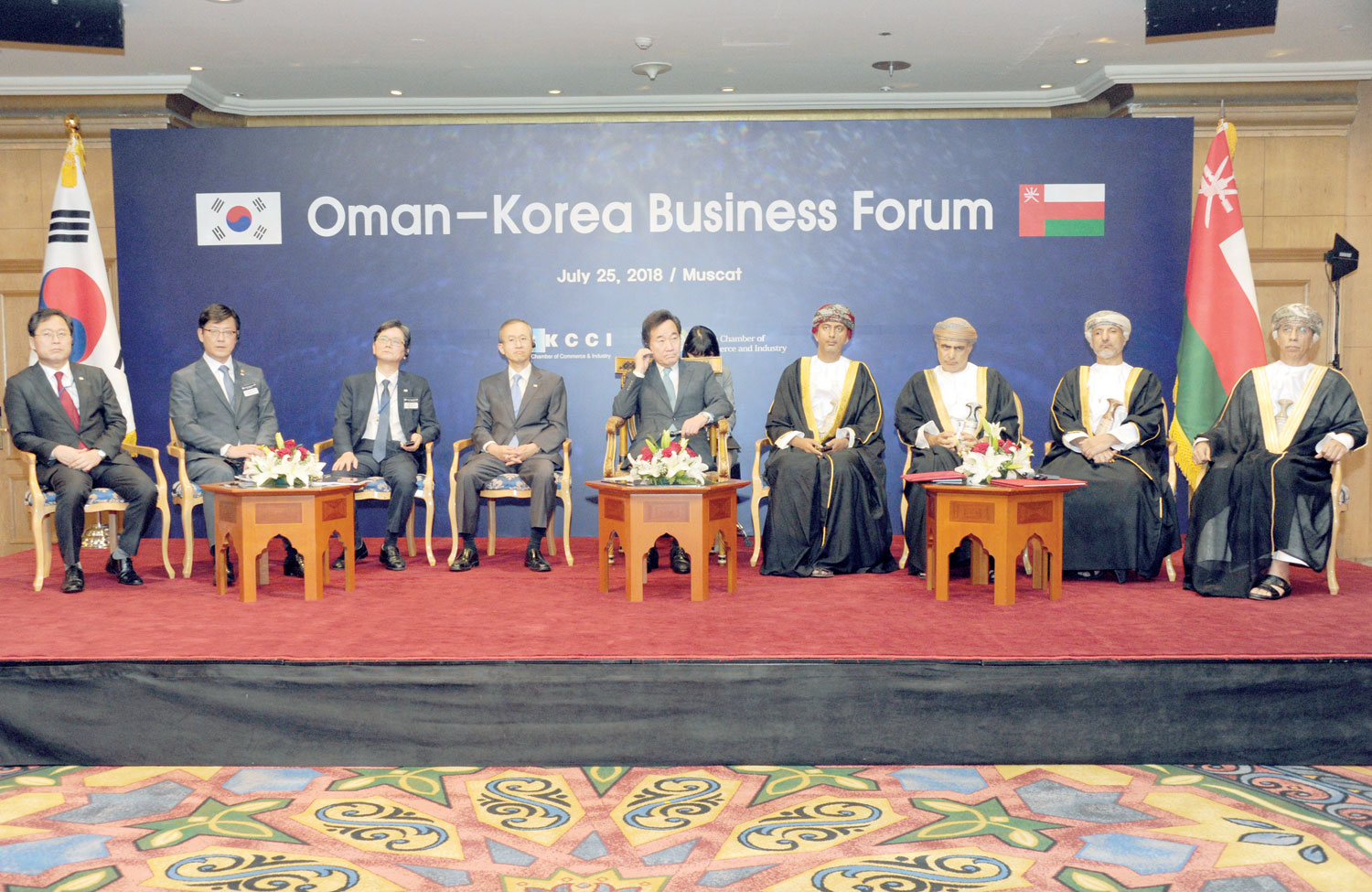

MUSCAT, JULY 25 - Oman is tapping South Korea’s much-vaunted expertise in the development of the Sultanate’s first ‘smart city’ at the Special Economic Zone (SEZ) in Duqm. An MoU to this effect was signed by the two countries against the backdrop of the Oman-Korea Business Forum, which was held at the Grand Hyatt Muscat yesterday. Present at the event were high government officials from Korea led by Prime Minister Lee Nak-Yon, while the Sultanate was represented by Dr Ali bin Masoud al Sunaidy, Minister of Commerce and Industry, and Dr Mohammed bin Hamed al Rumhy, Minister of Oil & Gas.
South Korea is credited with building the world’s first ‘smart city’ — the Songdo International Business District spread across 600 hectares along the waterfront in Incheon Province. The 10-year development, costing in excess of $40 billion, will feature more than 100 buildings, millions of square feet of LEED-certified office space, along with replicas of international architectural landmarks, schools, hospitals and cultural amenities. As a smart city, all of the buildings, utilities and amenities will incorporate the latest information and communication technologies (ICT) to enhance the quality and performance of urban services such as energy, transportation and utilities in line with sustainability objectives. Further, through the use of smart technology, smart cities promise to enhance the quality of life for its inhabitants.
According to Saleh bin Hamoud al Hasani, Director-General of Investors Services at the Special Economic Zone Authority of Duqm (SEZAD), the MoU marks the first step in an ambitious effort to apply the smart city concept to Duqm. “Under the MoU, the Korean side will undertake a comprehensive study that will explore how smart city principles can be adopted in Duqm. This is a one-year-long study, following which we will identify sectors that be integrated into the Smart City concept. Of course, all aspects of life in the SEZ will be covered in the study.”

Speaking to the Observer, Al Hasani said the Smart City Initiative — once successfully implemented in Duqm — will hopefully inspire its replication in other parts of the Sultanate. Earlier, in welcome remarks, Dr Ali bin Masoud al Sunaidy hailed the strength of Oman-Korean bilateral relations, which include a vibrant economic component as well. “The Sultanate of Oman and South Korea have enjoyed a long history of trade relations primarily based on oil, gas, petrochemicals and logistics, However; we are now witnessing new ventures like the solar energy project under development,” he said.
Dr Al Sunaidy urged Korean businesses to take advantage of the Sultanate’s modern infrastructure, friendly business environment, and promising investment opportunities. “Over the past years, the Sultanate of Oman has expanded its infrastructure to support the policy of economic diversification. (Various presentations) will illustrate the diversification plans and the vast investment opportunities in the special economic zones, free zones, industrial estates, ports, airports and related services.” In particular, he exhorted well-established South Korean companies to weigh opportunities for investment and cooperation in the knowledge-based economy.
“Today we sign an MoU for a smart city collaboration in the Special Economic Zone of Duqm. This could pave the way for local and international companies including those from South Korea to look into similar projects in Suhar, Salalah and Sur as well as in the new developments of Madinat Al Irfan, and the Khazaen Economic City in South Al Batinah.”
Korean Prime Minister Lee Nak-Yon pledged his country’s support for Oman’s future economic development as enshrined in the Oman 2040 Vision Strategy. Korea, he said, was committed to sharing its formidable expertise and experience in supporting Oman’s long-term growth, citing in particular the potential to support the Sultanate’s in its embrace of renewables, alternative energy resources, and the 4th Industrial Revolution.
Korea is an important trading partner of the Sultanate, with bilateral trade having crossed the RO 1 billion mark in 2017.
Omani exports, primarily in the form of hydrocarbons, accounted for RO 844 million of this share, while imports from South Korea — chiefly vehicles, machinery and electronics — were valued at RO 225 million.
Conrad Prabhu
Oman Observer is now on the WhatsApp channel. Click here



